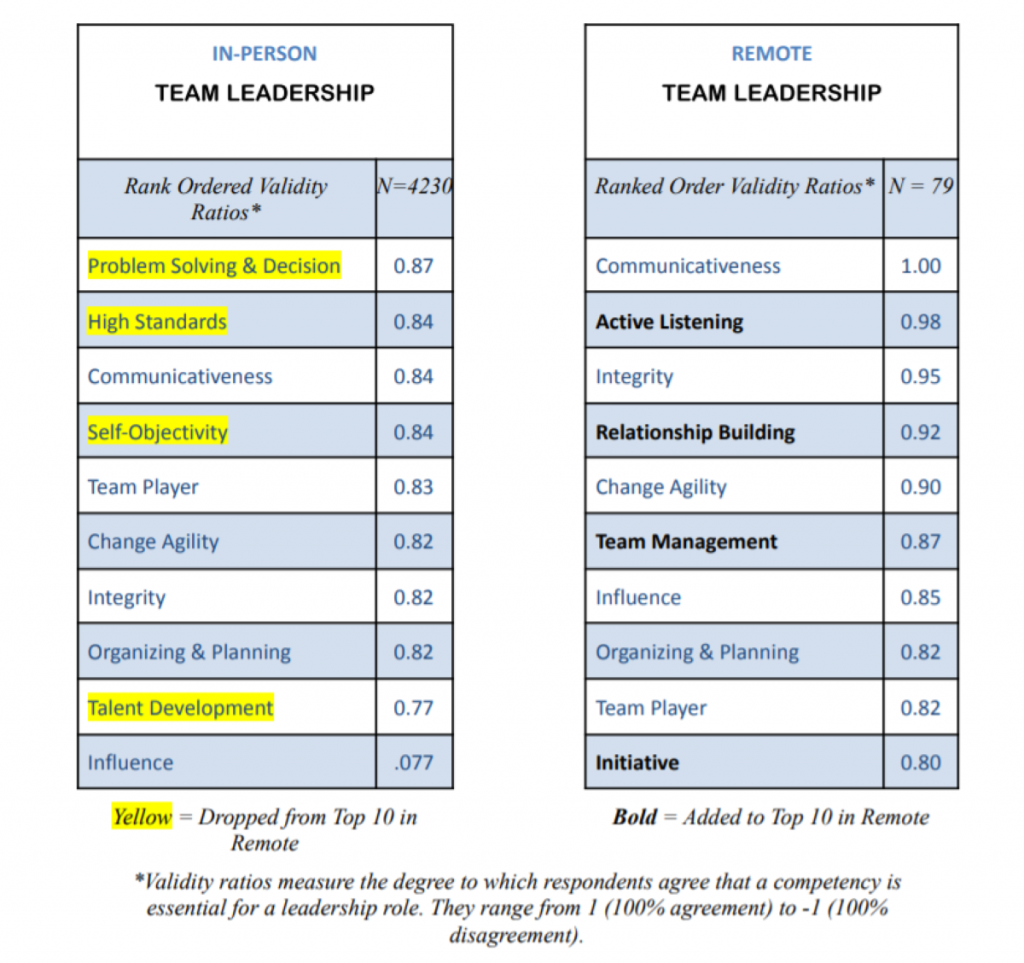Remote Leadership Research Results – Unmute Yourself: What Remote Team Members Say Are Essential Leader Behaviors
By Bruce Griffiths M.S., Deborah Pettry Ph.D., and Michael Slatofff, M.A.
Executive Summary
Our abrupt shift in 2020 to remote work seems likely to stay to some degree for countless individuals. This has come with personal and social costs for many. This raises the questions, what are the differences, if any, in what remote teams need from their leaders? How does/should leadership change in a remote environment?
To get at these questions, in December 2020 – February 2021, with Deb Pettry, PhD., we conducted a survey to compare current perceptions of required leadership competency in remote settings with our 20+ years of competency validation research (in almost exclusively face-to-face settings). We surveyed a variety of remote team members from various organization levels, asking them to think about their experiences being led by others remotely. We asked them to rate their remote leaders on essential competencies and to comment on current leadership needs and mistakes.
While leadership competencies didn’t change per se, their inflection certainly did. In an initial comparison of the top 10 competencies needed in face-to-face, versus remote, settings there were dramatic shifts. Communicativeness and Active Listening now jumped to most important, and added to this top 10 were Relationship Building, Team Management, and Initiative, replacing Problem Solving, High Standards, Self-Objectivity, and Talent Development. In short, the message is “communicate with me and pay attention to me.”
Literature Review Findings and Survey Results
Our literature review suggested that working on remote teams exacerbates issues of trust, communications, and empathy between leaders and members.
Our survey results confirmed that and more by revealing a marked increase in emphasis by survey respondents on the communications and socioemotional competencies.
As noted above, ratings revealed a clear shift in how essential certain leadership competencies were in remote settings. In an initial comparison of the top 10 competencies needed in face-to-face versus remote, there were dramatic shifts. Communicativeness jumped to most important, and added to this top 10 were Active Listening, Relationship Building, Team Management, and Initiative, replacing Problem Solving, High Standards, Self-Objectivity, and Talent Development.

As you can see in the tables, Communicativeness didn’t just jump to the first spot; it was unanimously seen as essential in their remote leaders by all respondents. Across hundreds of similar surveys this is a highly unusual result. It clearly signals that remote team members greatly need clear and regular two-way communications across every channel available. This includes exchanges that are not just leader to team, but also leader to individual team members, and team member to team member.
Please click this link to see our complete summary. Thanks also to superb support from Crystal Matsuura and Michael Slatoff for survey design, administration, and analysis.
To discuss this report or to learn how we can provide your organization with this same survey, targeted 360° assessments, competency modeling, leadership development, executive coaching, and talent management systems, contact:
Bruce Griffiths: bgriffiths@orgsysint.com
Deborah Pettry: deb@learningzenith.com


